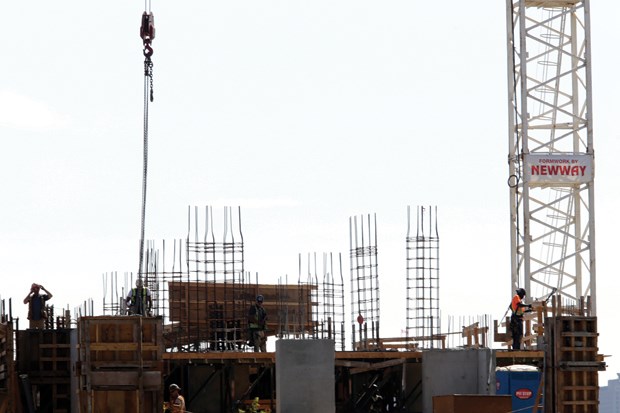The City and District of North Vancouver are among the worst for red tape when it comes to residential development, a new Fraser Institute study claims — though the two North Van mayors say the study is deeply flawed.
The district topped 10 Lower Mainland municipalities at being the most regulated with the city just two places behind.
The rankings are based on the typical length of time for approval and uncertainty of the approval timelines, regulatory compliance costs and fees, the role of politicians and community groups in residential development and the effects of zoning bylaws and official community plans.
Getting approval for a project in the district takes 16.1 months, the study found. Only West Vancouver took longer at 17.7. By contrast, Pitt Meadows only required five months.
The Fraser Institute estimates each new unit of housing in the district costs developers $40,000 in fees, compared to only $14,357 in Abbotsford. The city came closer to the middle of the pack at $25,000.
The councils and community groups in both municipalities present a mild to strong deterrent to development.
“It appears that we’re seeing a form of NIMBYism where council and community opposition to residential development is strongest in municipalities with higher dwelling values — like on the North Shore and in Vancouver,” said the study’s author, Kenneth Green.
The think tank goes on to argue that delays and development cost charges and community amenity contributions developers pay are to blame for the high cost of housing.
The Fraser Institute ranked the municipalities based on survey responses from a total of 43 developers and builders who have navigated their public processes, although typically only three to five respondents had experience on the North Shore, the report states.
That’s not nearly enough to get an accurate idea of what’s going on, district Mayor Richard Walton said.
“It barely scratches the surface in terms of giving you really useful information you can use to benchmark yourself and also try and do a better job,” he said.
As an example, the report stated that 95 per cent of projects in the district require rezoning when in reality 96 per cent of building permits the district grants are for rebuilding single-family homes, which don’t even come to council, Walton said.
And Walton isn’t apologizing for the way his community does consultation.
“From the public’s point of view and from the community associations’, the response could be, ‘We expect our council to go through a very high level of diligence. We expect them to negotiate on our behalf to try and get the best possible developments that reflect where the community wants to go.’ That process takes a significant amount of time,” he said.
City of North Vancouver Mayor Darrell Mussatto said the survey respondents were clearly one of the few who had bad experiences with the city.
The city tries to turn around proposals quickly but development applications span hundreds of pages, with each needing expert staff scrutiny before a project comes up for council approval, Mussatto said.
And the regulations that are in place are there to ensure safety, he added.
“(Staff) find a tremendous amount of errors that need to be corrected before they can issue building permits. If you’re going to do changes, do it on paper before you actually pour the concrete. That’s much more expensive,” he said. “(The Fraser Institute) calls it red tape but these are life safety issues here.”
As for the development costs and possible impact on housing prices, both mayors said their councils try to strike a balance between allowing development and making sure it comes with amenities a growing city needs.
“They want their overhead to be as low as possible, the cost being predictable and we try and get a reasonable amount of future contribution from the developer in CACs and DCCs so that we have the infrastructure available to provide the services for those people. That’s the balance,” Walton said.
Mussatto said he’s open to reviewing the DCCs developers pay. “DCCs are very complex and yes, we should have a region-wide discussion about those things — a civil discussion, not simply getting the Fraser Institute to bash municipalities. I don’t think that makes for a healthy discussion environment,” he said.



